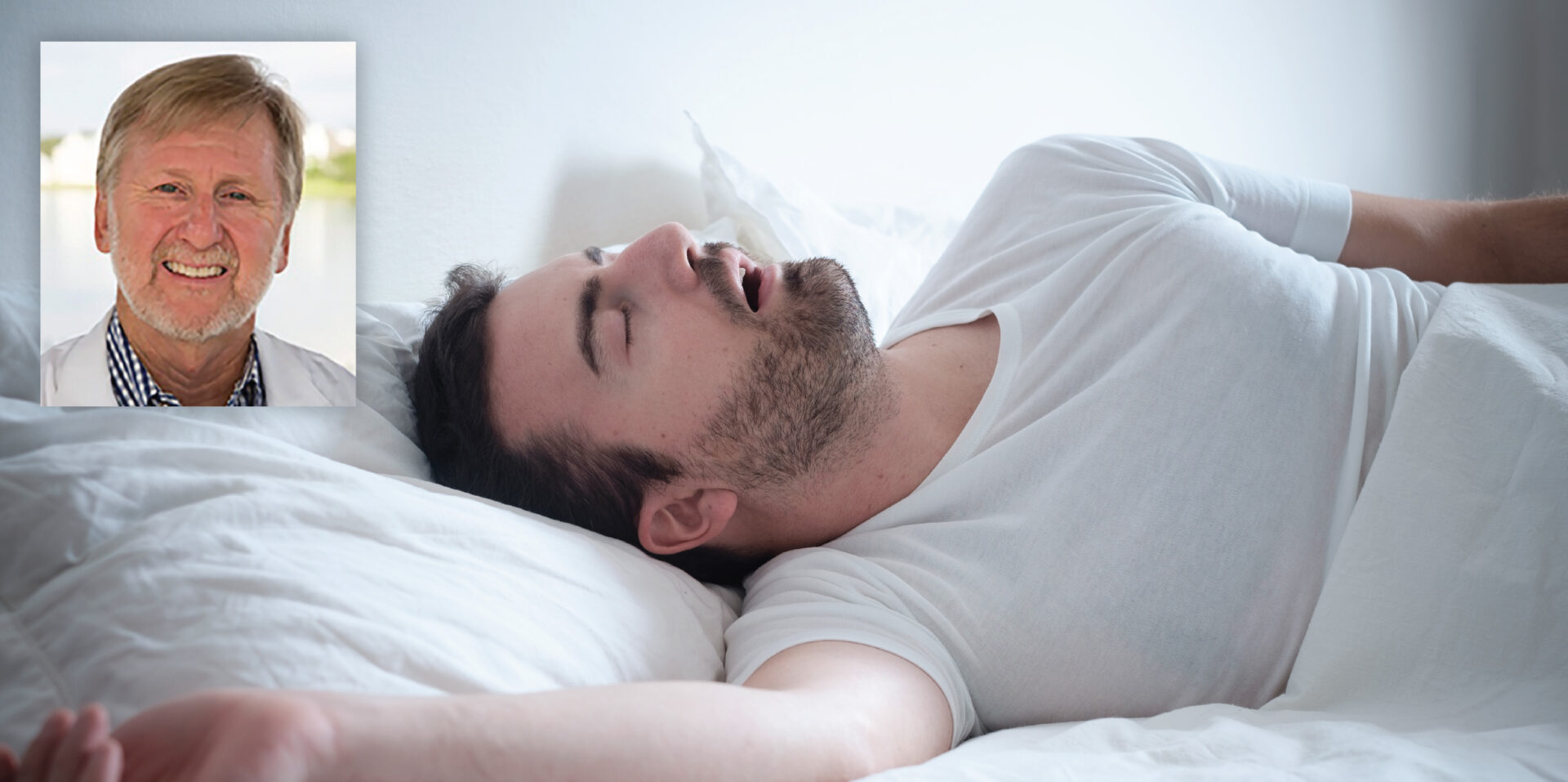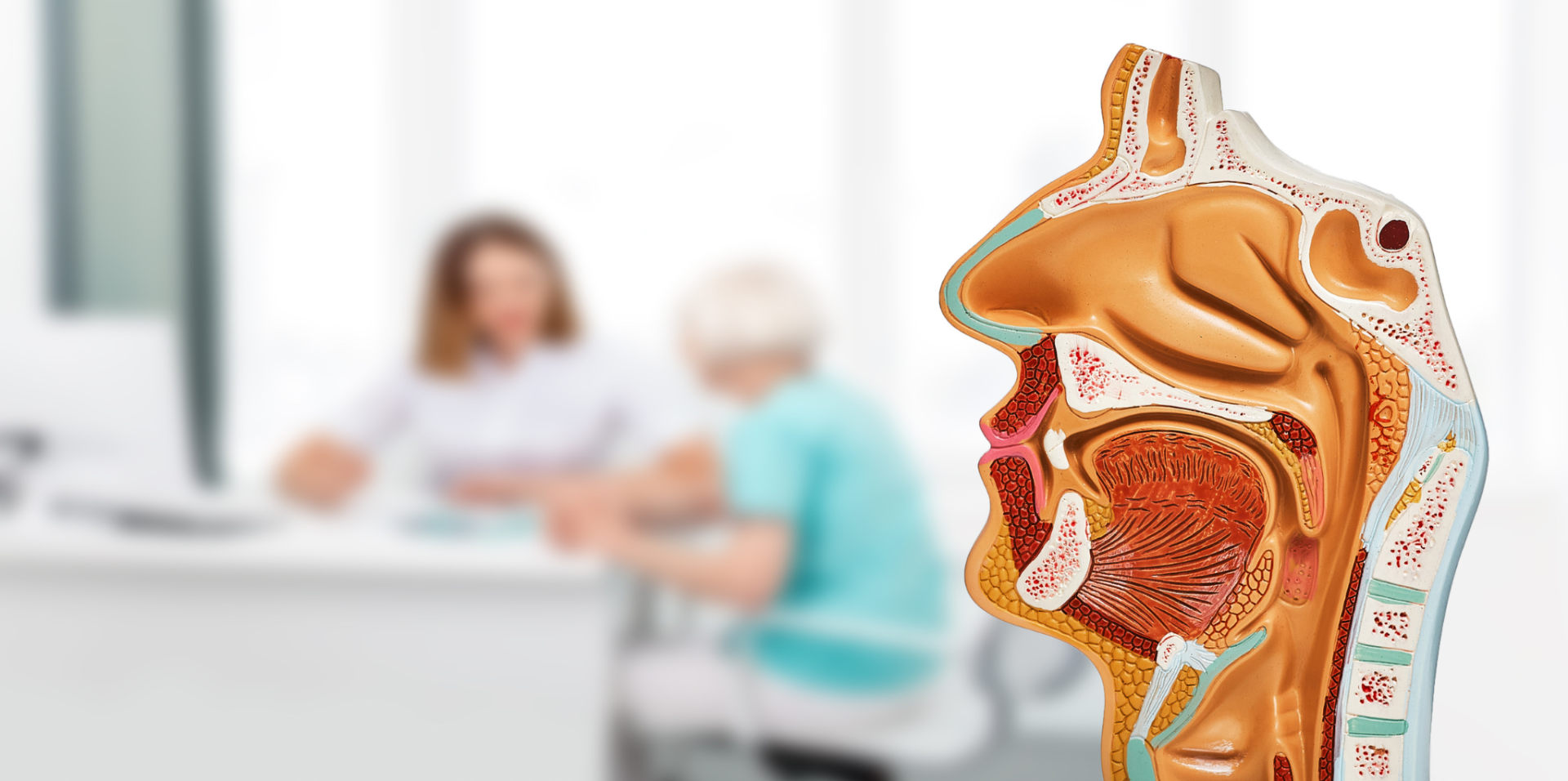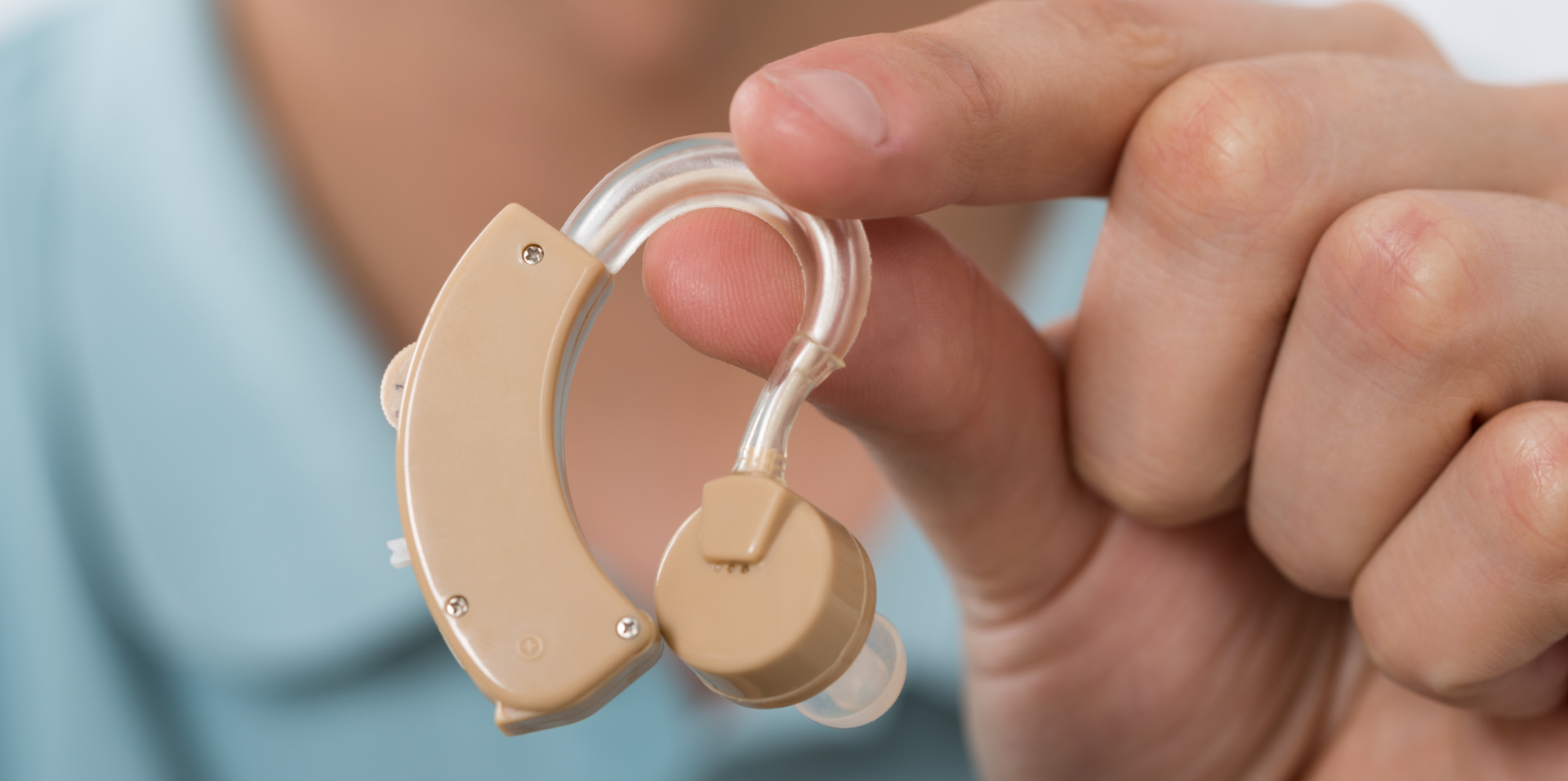It’s All in Your Head: Snoring Update
I am sure that all of us folks remember seeing cartoons as kids where one of the characters is asleep. We all knew he was sleeping because of the loud snoring sound that came with each breath. At the time it was pretty funny. But in real life there is absolutely nothing funny about snoring. I would like to review what I have learned in the 39 years since I finished my training in Ear, Nose and Throat. Unfortunately, I cannot offer any absolute guaranteed cures.
I do not believe I need to define snoring. We all have heard the loud, usually low pitch vibrations that are created by very many people during sleep breathing. In the majority of adults with snoring, the sound itself is created by the uvula (that structure we all have hanging down from the soft palate) vibrating. It is similar to the moving clapper inside a bell bouncing against the sides and making sound. I do have to say that the sound of snoring is not the same as in sleep apnea where the airway obstructs. In that case the sound may be coming from the back of the tongue hitting the airway.
Multiple treatments for snoring concern improving nasal breathing while asleep. It is very true that many people who sleep quietly during normal circumstances will begin snoring whenever they have a cold or allergy attack that causes nasal congestion or obstruction. That leads to either having to sniff or snort in air more forcefully which creates a sound or open mouth breathing that also creates sound. One example of the device that may help reduce snoring are the external Breathe Right strips. By lifting the sides of the nose up and out, more air goes quietly through the nose and snoring is less. Nasal sprays such as Flonase or a new over-the-counter one called Astepro can be helpful. Many report just using salt water nasal sprays or washes before bedtime help.
There is a very inexpensive way to determine if nasal obstruction is playing a role in snoring. The topical decongestant nasal spray Afrin (or any other brand with the same ingredient, oxymetazoline) can be used for 3 or 4 nights in a row before going to bed. If opening the nasal passages with Afrin reduces snoring then there are many procedures that provide long-term relief of a blocked nose.
Since the late 1980s, multiple techniques have been developed to reduce the sound vibration coming from the soft palate and uvula. Many of these can be done in the office and involve stiffening the soft palate with injections or electrotherapy and/or removal of much of the uvula itself. While this initially seemed very promising, long-term results with this technique on the roof of the mouth have not shown a success rate greater than 50%. A thorough exam of the area provides clues whether something like that will work.
Removal of tonsils and adenoids cannot reduce snoring. However, this is generally much more effective in children than it is in adults. And, unfortunately even with the most modern surgical techniques, tonsillectomy has a very painful recovery.
One relatively new and painless technique is gaining more acceptance. At first it sounds very strange or even a little cruel. Taping the upper and lower lips together at bedtime is definitely becoming more popular and is often successful. There are special types of lip tape that are available that are easy to apply and remove. A simple Internet search will come up with many brands. Most take a few nights to get used to and patients have to start with just a few minutes or hours to begin with then build up to all night use. By forcing the air flow to go fully in and out of the nose there is actually some remodeling of the soft parts of the airway. But if there is severe nasal obstruction to begin with, taping of the lips will not help and can feel very restrictive or suffocating.
When patients come to my office with concerns about snoring, generally a thorough history will help rule out sleep apnea. Sleep apnea is a topic for another time but can be a very serious condition with life threatening consequences. A simple at-home sleep study will help determine if that is present and other treatments may be available including the CPAP unit.
And of course, there is a very large association with snoring and excessive body weight or obesity. As we all know, gaining weight in our society is extremely easy. Weight loss is often difficult but has been shown to greatly reduce both snoring and sleep apnea.
In summary, I tell many of my patients that if the Afrin test that I mentioned greatly reduces snoring then there are multiple things I can do to get you breathing better through your nose. Unfortunately other procedures on the mouth and throat may be ineffective.





